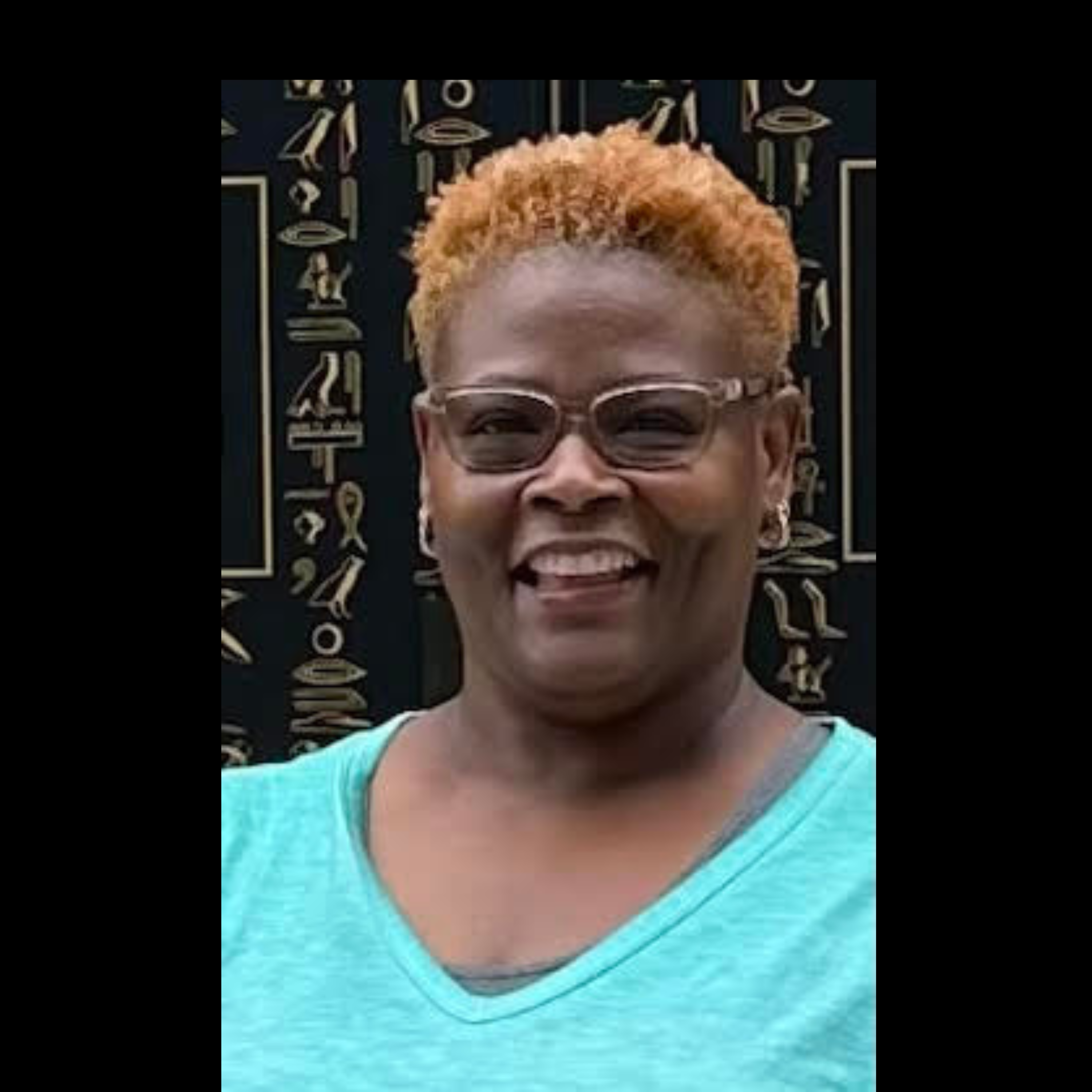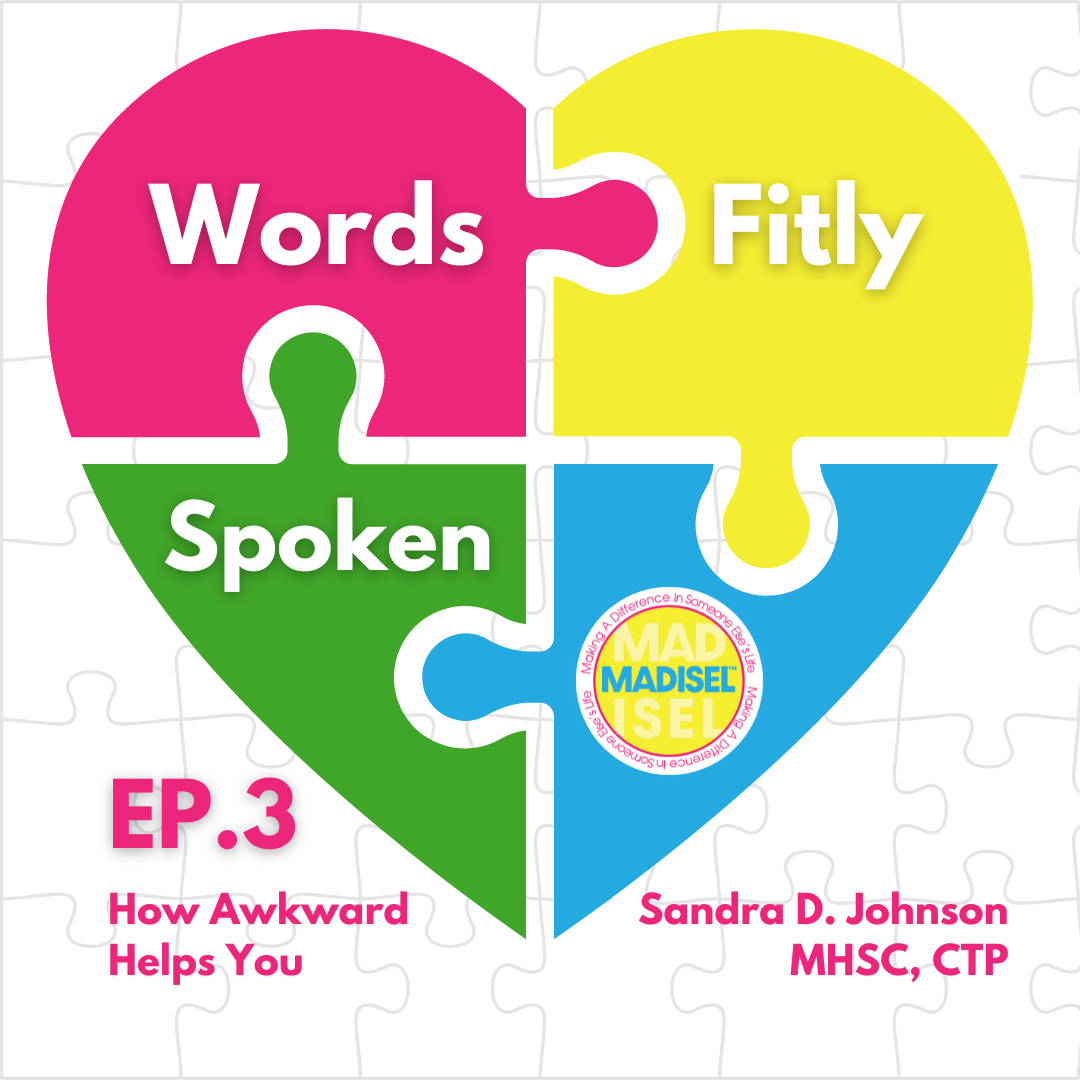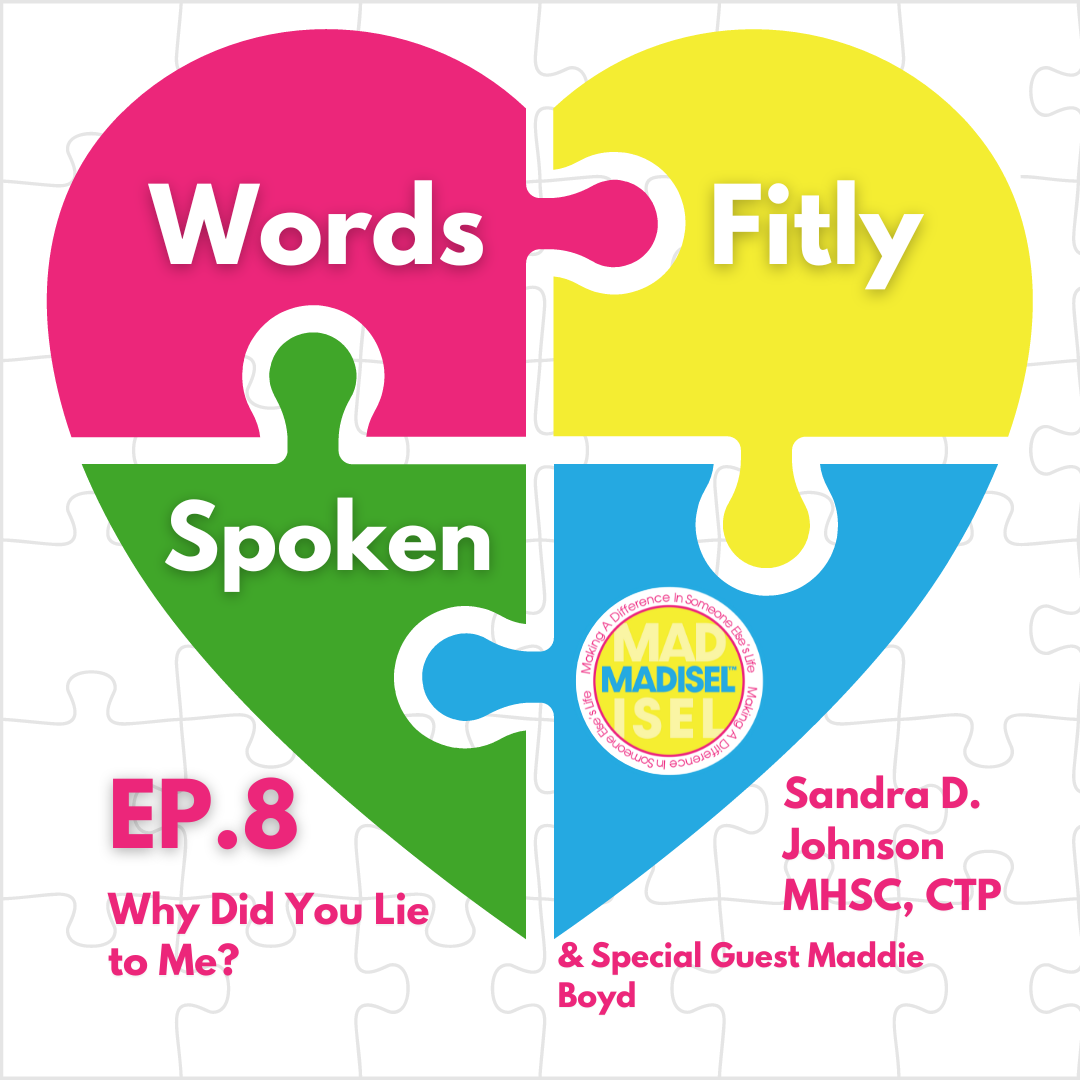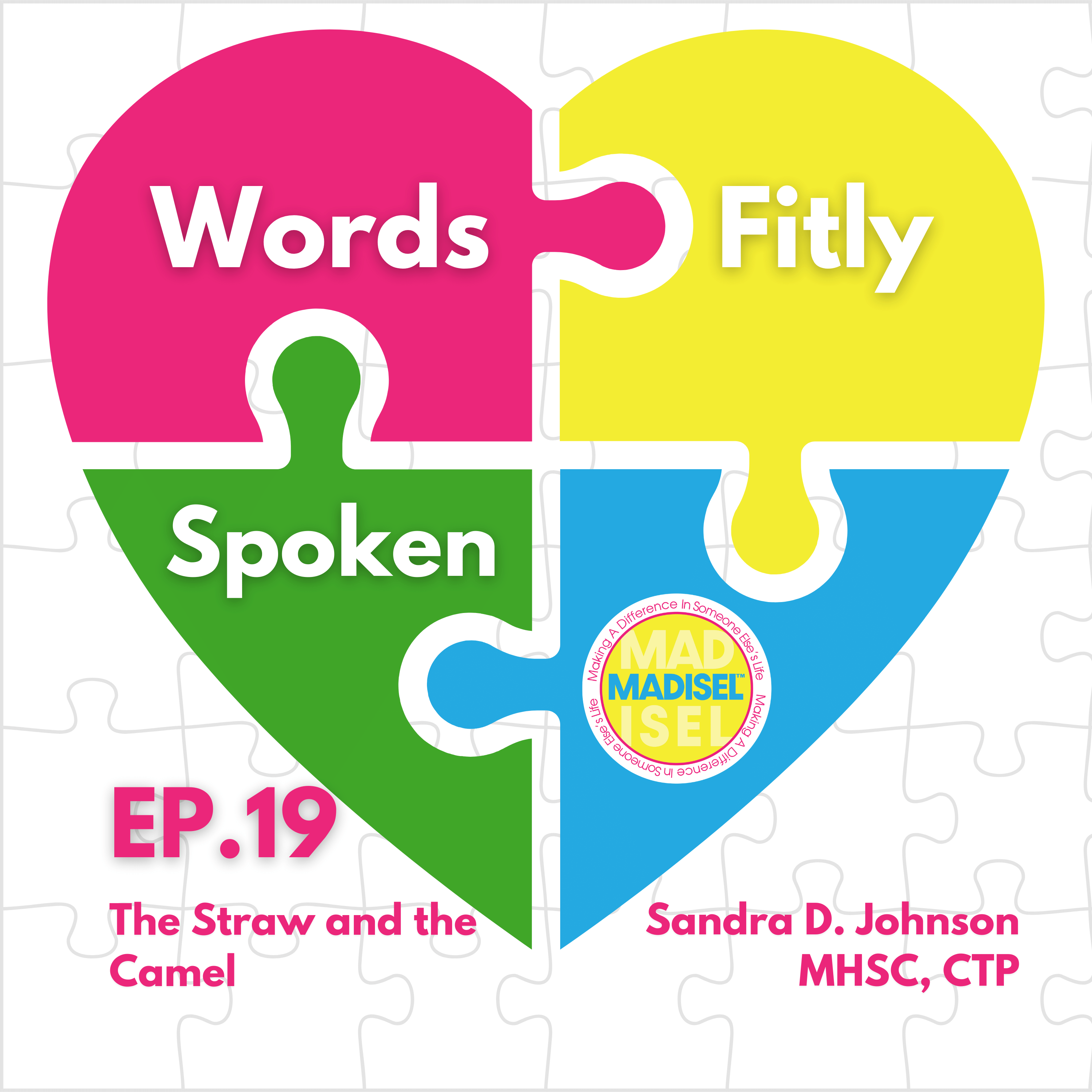The topic of anger is always a tough subject. We discuss why anger is necessary. The emotion of anger helps us with many important issues of our life. Join Coach Sandra on this episode and find out more of how anger is communicated to you.
View Full Transcript
Episode Transcript
Welcome to at MADISEL Coach and MADISEL TV's Words Fitly Spoken podcast. Hello there. I'm Coach Sandra, and I'm the host of Words Fitly Spoken podcast. Words fitly spoken are words spoken at the right time for your encouragement and enrichment? On this podcast, we will deal with emotional and mental wellness by talking about the conflicts we have in our everyday relationships, whether at home, work, school, and the community.
Stop in to hear some helpful words that create awareness about your emotional health. Hey, thanks for coming back. Good to see you. Welcome back to MADISEL coach. And what we wanna talk about today are two A words. Two A words. These A words are gonna be, uh, some powerhouses of our emotions and the feelings that everyone experiences and sometimes this, they both.
I'll say that both of these A words, they get such a bad rap. So let's talk about the first one. Wow. Very hot topic, anger. Oh my goodness. Do you get angry? I get angry. Uh, you know, sometimes we'll say, well, what makes you angry? We have a lot of different things that make us angry. What I notice is that when I talk to different people about it, some, some people are afraid to even use the word, and a lot of times it's because they've been, um, brought up.
In a way that says anger is just horrible. It's bad, it can't be in the house, it can't be a part of your life. And it's like, no, don't do that, please. Because what we don't seem to understand people who are saying that to kids, uh, to other relatives, um students, whoever's being told anger is bad, no anger is actually necessary.
I said it. Anger is necessary. Anger is actually a part of our human makeup because it is beautifully intimately connected to injustice. Here's what I mean by that. We each have an anger meter inside of us. What that meter is doing for us is communicating. When something is unfair, something is out of balance.
There has been an injustice. That's what it means for anger to be intimately connected to injustice. Anger is a communicator. This a word is awesome. You need the communication of anger to let you know something is out of balance. Now, something might be you, so keep that in mind. You might be out of balance.
You might be the one creating all the chaos. So your anger meter works that way. You're angry, you're upset. You know, we use the soft words, I'm, I was disappointed, or I was irritated. I was frustrated. Those are all different words that we'll use to replace it. Sometimes we'll hear, well, I'm mad. Those are all different levels of how we hear, interact, and move around the hot topic of anger.
So I created a card as a reminder, as a support, and I call it angry me. And the reason I do that is because your anger is about you. I don't know if you heard that, but I'll say it again. Your anger is absolutely, positively, always and forever about you. It's a communicator to you. Now other people will be able to experience it, of course, you know in someone's angry around you, so you experience other people's anger and they experience your anger.
But we love to use, um, the bailout as our way of saying, that person made me angry. That situation made me angry. I'm angry at you because you gotta first recognize you're angry because of you. The communication is to you first, then it can be for other people. But you've gotta pause long enough to understand.
Your anger is about you. We don't all get angry at the same things that bothered this person, but it didn't bother me or that bothered me and it didn't bother you. So we don't all get angry at the same things again. We have an anger meter that's inside of us and how we interact in the world. Is where the, it'll register at different places at different times.
On Tuesday, I was angry about this on Thursday. That made me upset. Oh, on the weekend, I can't believe that that person interrupted my quiet time and we get upset about things. All of that stuff is human.
One of the things that we, well, multiple things, not one, but many things that we need to understand about anger is that it's normal. It's a natural emotion.
I love to say that the root of anger, our anger issues that we say we have, um, sometimes we'll say we have an anger problem or there's anger issues. Um, It's a per a perception inside of us that something has been taken. Remember I said the injustice? So you have this perception, something's been taken, you've been wronged, and we don't wanna be wronged.
We don't wanna be wronged either, but we don't want to be wronged Ed. Therefore, you feel that, you know something's probably owed to you. And you're gonna make sure that debt is paid and anger the emotion, the heaviness of it, the strength of it. It takes prisoners, absolutely. Anger will hold you hostage.
It will hold you hostage until a debt is paid.
That's something again, we have to learn to take responsibility for. That's why. I try to teach it as the anger is my responsibility. I have to take responsibility for my anger. I can't blame it on my society, on different people, on different situations. Things make me upset sure, but they're my responsibility to identify them and to learn how to work through them.
I love to also get people to think about when you are angry. We have to learn to be angry without hurting someone that includes ourself. So again, be angry without hurt. Learn to be angry without causing hurt or harm to yourself or to other people. Your anger is more about you and others around you.
Acknowledge your anger. It's okay to say I'm, I'm mad about this, or that made me angry. I'm really angry right now. Okay, you acknowledged it. You may need to take five 15 a nap, whatever that can help you work through it. You may need to work out. Um, but what you don't need to do is cause hurt and harm to anyone else because of your anger.
Your anger. It's not their fault. It's your anger. Own it. Be responsible for it. Process through it. Think through it. You may need to pray through it.
Another thing that you can do that can help, I love this tool. It, it's what I call deescalate. Uh, you can deescalate your anger by reclassifying it. Here's what I mean by that. To reclassify it is sometimes because anger. Because anger is what I like to call the squeaky wheel, and we know the old statement that says the squeaky wheel gets the oil right.
That item that's crank, crank, crank, crank, crank, it's making all the noise. It might need to be oiled so it can roll smoothly. Right? That's the best. Visual example I can give you on that one. But to reclassify it, sometimes it's not anger that is the main picture in the story. There are other pieces that happen in the conflict, in the incident, but anger, it's bossy.
It, it's gonna come to the top. It's gonna push his way to the front of the line. You have to work on understanding that anger is not the first thing that I really feel. What really happened is that I was embarrassed and I didn't deal with my embarrassment because I was ashamed. So anger just bullied this way to the front of the line.
Then I just start saying things, cussing people out, hurting people's feelings, calling people names, pushing, shoving, being a bully 'cause of anger, my anger, not yours, mine my responsibility. So when you reclassify, you really identify what the main issue is. Like I said, it could have been embar. You may have been discouraged, you may have been embarrassed.
We have to remember the anger will demand more attention. You don't have to give it all of the attention. This is your body. This is your mind. This, these are your emotions. Anger wasn't created in us to control us. But if you let it, it will take you hostage. Keep it in mind. So again, as you learn to regulate and reclassify, um, your emotions, that makes you stronger.
That makes you more disciplined. By the way, I believe. There's character traits that grows from that. You become more self-control, you become more self-disciplined and not just reacting to all of the events around you. You actually begin to process and have consideration, um, understanding that your anger can create more problems and hurt not just you, but everybody.
In that situation, again, don't excuse or blame your hurtful words and your behaviors on your emotions. We do that a lot. Remember, your anger is communicating to you. So unchecked anger is just dangerous. So when you don't check it, it's gonna be dangerous for you and it's dangerous for everyone else.
Anger does carry an explosive energy, like more than really I believe any of our other emotions. Anger carries the most explosive energy. Keep that in mind.
Anger is a real emotion that must be noticed and resolved before it takes control of you as a person. It will ruin everything in its path, like a hurricane, a tornado, a tsunami. It's destructive again. I don't think anger's bad. No, I think it's beautiful because we need it. It's necessary, but I also need to know that it carries with it the power to be destructive.
So that all the more reason why I have to take responsibility for my anger and not blame it on everybody in the universe because I am mad or I am upset. We have to choose not to just call it a problem. And I also believe we have to move away from just anger management, um, because I think it's too big to manage.
I think you have to manage your behavior and you don't manage the emotion. I identify the emotion. I'm aware of the emotion of anger, but I don't really need to manage it. I need to manage the behavior that comes because of the beautiful, powerful, explosive emotion known as anger. Okay, so that's the first a word, and that's a big heavy duty topic.
Thanks again for stopping by. We enjoy having you. We enjoy connecting with you. Come back and listen to more episodes. You can follow us on @ MADISEL Coach on every platform.
Thanks again. We appreciate you.





